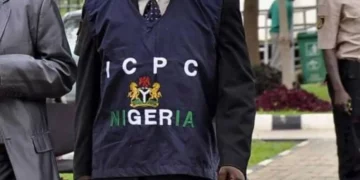The Inspector-General of Police, IGP Olukayode Egbetokun has called for more collaboration among member nations of INTERPOL to tackle cybercrime globally.
Egbetokun stated this at the opening ceremony of INTERPOL’S 10th African working group cybercrime units meeting for African heads in Abuja, on Monday.
According to him, “In today’s interconnected world, cybercrime has become an evolving threat, affecting individuals, a pervasive
business, and governments alike. The rise of cybercriminal activities poses significant challenges to our law enforcement agencies, requiring us to adapt swiftly and collaboratively to effectively combat these threats.
“Cybercrime is a global menace that requires the synergy of the entire global law enforcement community as no nation can do it alone. While assuring you of our willingness to deepen the relationship with our partners, I encourage you to leverage the inherent capabilities and resources of the Nigeria Police Force National Cybercrime Center in our joint effort to effectively combat the evolving cybercrime trend.”
Also speaking, the Vice President for Africa INTERPOL Executive Committee, AIG Garba Baba Umar said the meeting on cybercrime allows the member countries to discuss transnational crimes affecting the region, particularly on cybercrime, to identify possible solutions and the operational needs of member countries to review INTERPOL expertise and policing capabilities to support the continent.
AIG Umar also said the meeting was also to facilitate direct and in-person interaction amongst the INTERPOL network of national cybercrime.
In essence, he noted that the 10th INTERPOL Africa working group meeting on cybercrime gives the opportunity to re-examine the challenges of fighting cybercrime in the region and reassess strategies as well as reaffirm the determination and unity as a region to provide security to the citizens.
“Therefore, enhancing inter-regional cooperation to combat cybercrime in all its forms is the objective we need to set for ourselves in the African continent as it is elsewhere.
He stressed that the meeting for this year will among other topics, expand on transnational organised crimes which he fingered as the source of the illegal global economy, an industry he noted not stagnant but adapting to new markets and creating new forms of crime. “This industry is an illegal business that transcends culture, social linguistics and geographical boundaries.”
Meanwhile, the Director, Cybercrime Directorate Unit, Craig Jones, noted that, “in 2024 our priority crime areas will be the criminal tools and infrastructures that facilitate cybercrime; attacks on ICT networks, intrusions and the malicious activities carried out on a digital network, the deployment of malicious payloads including ransomware, banking trojans, spyware, the exfiltration of sensitive data or Distributed Denial of Service (DDoS) attacks. This will also include the phishing attacks and the technology and technical exploitation used in Business Email Compromise,” Jones said.
He emphasised that the meeting will further prioritise INTERPOL role in Africa “with our regional approach that offers tailored support through the Africa Joint Cybercrime Operations Desk (AFJOC), funded by the United Kingdom Foreign, Commonwealth & Development Office. We have increased capabilities, delivered tools, platforms, frameworks that are essential to ensure there is a cohesive response to cybercrime.”











